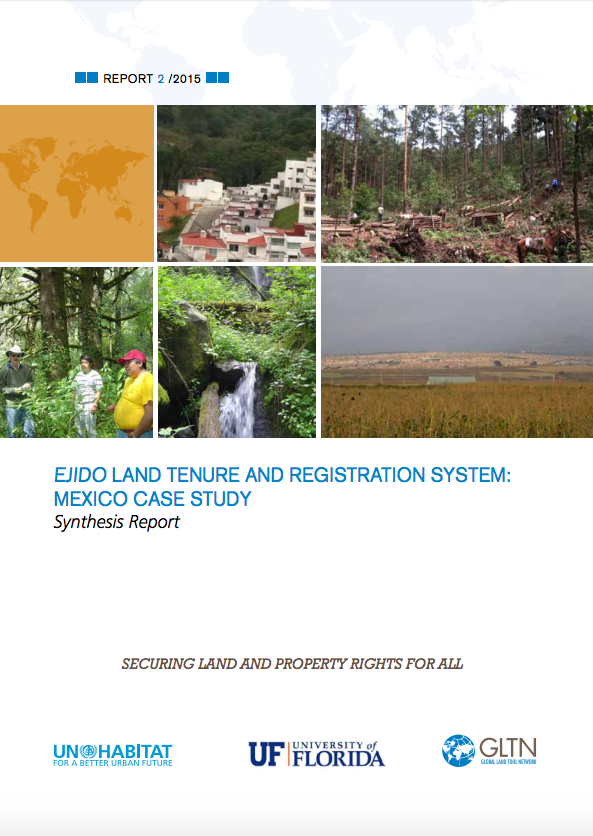Mexico Case Study of Ejido Land Tenure & Registration System
Resource information
Date of publication
Diciembre 2014
Resource Language
ISBN / Resource ID
Mexico Cas2015
Copyright details
UN-Habitat/GLTN
This report summarizes a case study of the Mexican ejidocommunity tenure system. Mexico was selected for this case study because of the rich history and extensive scale of the country’s community land tenure and registration systems. This community system covers 52% of the area of Mexico, roughly equivalent to the size of Egypt, and comprises over 30 000 communities. The ejido system emanated from the Mexican revolution (1910-1917) and represents a case where the customary system of land has been largely integrated into the statutory system. The case study is particularly relevant to countries which are trying to accommodate customary land systems within a formal land


